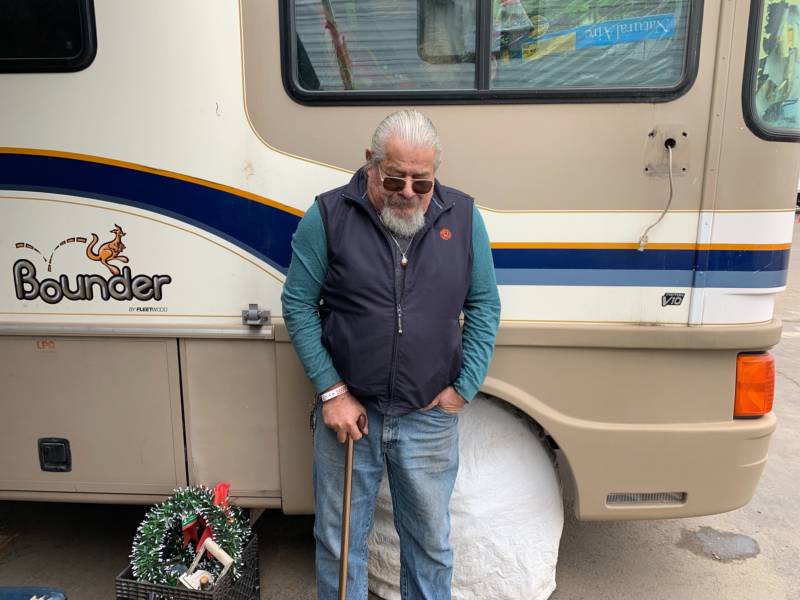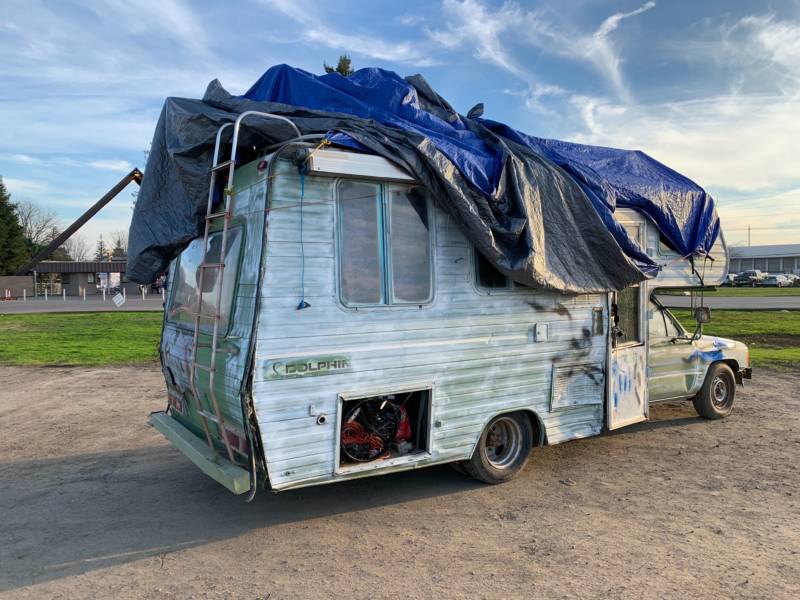For survivors of last fall's Camp Fire, which killed 86 people and destroyed nearly all of Paradise in Butte County, a deadline loomed this week. The last shelter — operated by the Red Cross at the Silver Dollar fairgrounds in nearby Chico — was slated to close on Thursday. So did it actually close? Yes and no.
North State Public Radio reporter Marc Albert told KQED on Friday that the vast majority of fire survivors who were staying there have moved to local homeless shelters or FEMA trailers, or have found housing options with friends or family. But not everyone.
"There are several people there, including people with medical problems, who are under the impression that they will not be asked to move," Albert said. "The operators of the fairgrounds are offering people with RVs the opportunity to lease a parking space for $40 a day, not including hookups. That works out to $1,200 a month, which is quite a bit of money."
Former Paradise resident Anna Goodnight, who lost everything in the Camp Fire, is one of the shelter residents who hopes she'll be allowed to stay due to a medical condition. But that's not to say she's happy about conditions at the shelter.
"All we're trying to do is live the best we can," Goodnight said. "And then they put us down and then you get more depression. We're all suffering PTSD. And it's gotten worse. Only if they would do their job right and talk to us like we're not s***."
Disaster relief officials have been racing to find temporary shelter or housing for dozens of people at the shelter, who now face homelessness.
Many of the folks who are left at the shelter were already living on the economic margins when the Camp Fire destroyed whole towns and rural mountain neighborhoods.


9(MDAxOTAwOTE4MDEyMTkxMDAzNjczZDljZA004))